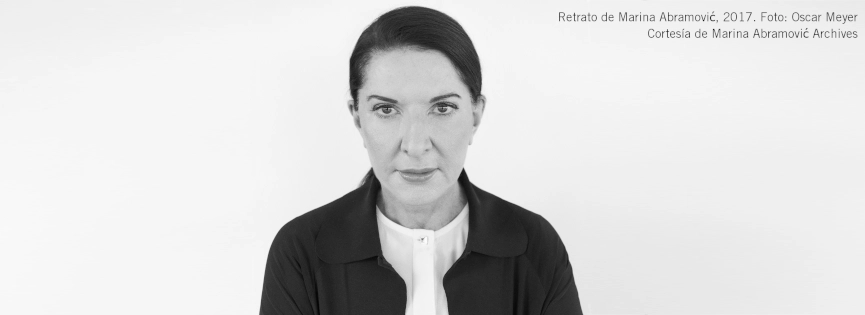Main content
Marina Abramović 2021 Princess of Asturias Award for the Arts

Marina Abramović was born in Belgrade (Serbia, then Yugoslavia) on 30th November 1946. She studied at the Belgrade Academy of Fine Arts (1965-1970) and completed her postgraduate studies at the Zagreb Academy of Fine Arts (Croatia, 1972). Between 1973 and 1975, she taught at the Novi Sad Academy of Fine Arts. She left Yugoslavia in 1976 and settled in Amsterdam. In this city, she met the West German performance artist Uwe Laysiepen, Ulay, with whom she began to collaborate exploring the concepts of ego and artistic identity, the traditions of their respective cultural heritages and the individual’s desire for rituals. They dressed and behaved like twins and created a relationship of utmost trust. In 1988, they decided to take a spiritual journey, The Great Wall Walk, with which they would conclude their relationship; they would both walk along the Great Wall of China, each starting at the opposite end and meeting in the centre for one last hug.
According to critics, Abramović’s work explores “the limits of the body and mind” through risky, complex performances in a constant search for individual freedom. She began her career as a performance artist in the 1970s. Following her first solo performances, Rhythm 10 (1973), Rhythm 5 (1974), Rhythm 2 (1974) and Rhythm 0 (1974), and after meeting Ulay, she devised a series of works with him in which their bodies created additional spaces for interaction with the audience: Relation in Space, Relation in Movement and Death Self. In 1997, she presented the piece Balkan Baroque at the Venice Biennale, for which she received the Golden Lion for best artist. In 2005, she presented Seven Easy Pieces at the Solomon R. Guggenheim Museum (New York), recreating on seven consecutive nights the works of pioneering performance artists from the 1960s and 1970s, as well as two of her own, Lips of Thomas and Entering the Other Side (1975 and 2005, respectively).
In 2010, a major retrospective of her work opened at the MoMA in New York which included video recordings from the 1970s, photographs and documents, a chronological installation with actors recreating actions previously carried out by the artist, as well as the most extensive presentation carried out by Abramović: 716 and a half hours sitting motionless in front of a table in the museum’s atrium, where spectators were invited in turn to sit in front of her, to share the presence of the artist. Directed by Matthew Akers, the documentary about this retrospective, The Artist is Present, was released in 2012. It was nominated for best documentary at the 2013 Independent Spirit Awards and received the Audience Award for best documentary at the 2012 Berlin Film Festival. From this experience arose the idea to create the Marina Abramović Institute (MAI), an art centre located in Hudson (New York, USA) in which all kinds of cultural events, workshops and exhibitions related to performance and contemporary art would be held.
In 2011, she premiered Life and Death of Marina Abramović, a cross between theatre, opera and visual art, edited by Robert Wilson. In 2016, she published her autobiography, Walking Through Walls, and in 2018 she made her debut as an operatic stage director with the play Pelléas et Mélisande at the Flanders Opera. In 2020, she premiered Seven Deaths of Maria Callas, an operatic montage around the figure of the diva. That same year, the Royal Academy of Arts programmed a retrospective on the Serbian artist’s work that had to be postponed until 2023 due to the COVID-19 pandemic.
Invested with the Austrian Commander Cross and an honorary doctorate from the University of Plymouth (2009), Abramović has received, among other awards, the Golden Lion for best artist at the Venice Biennale (1997), the Niedersächsischer Kunstpreis (2003), the New York Dance and Performance Award (2003) and the Cultural Leadership Award from the American Federation of Arts (2011).
End of main content
